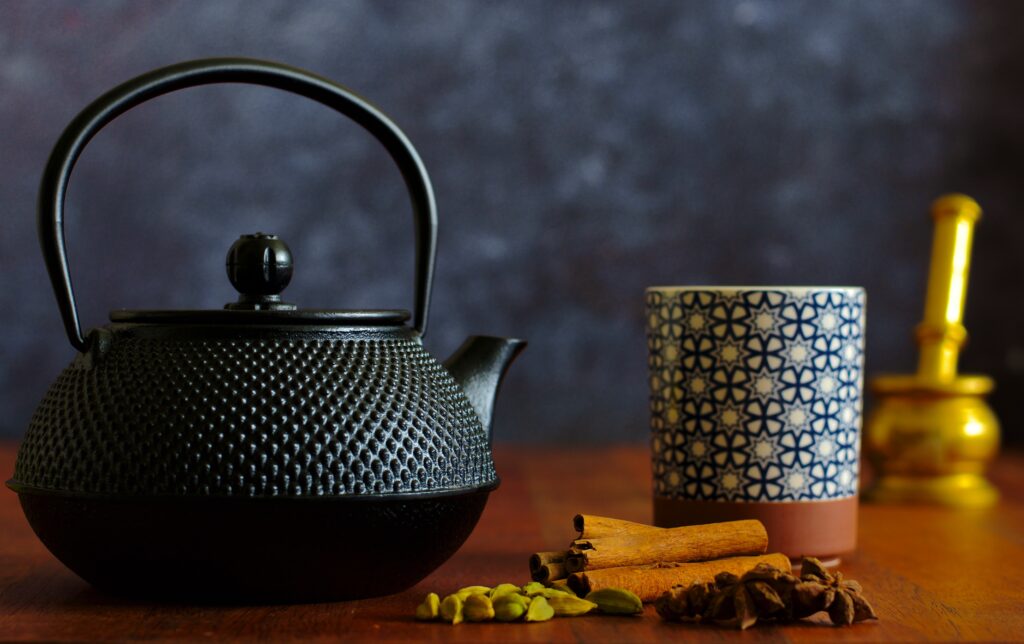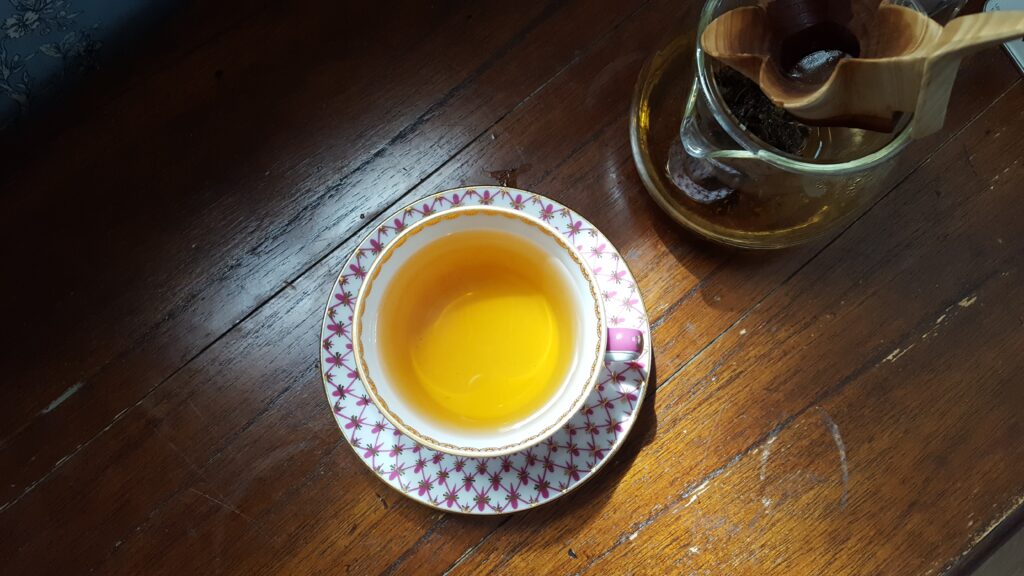Four Teas to Boost Energy, Alertness Across Sleepy March
Next month, which begins on Monday, offers little in the way of big holidays. In fact, our next national holiday isn’t until the end of May — Memorial Day.
But March does introduce two things that are both personally and cosmically important. On Sunday, March 14, we spring forward our clocks by an hour. And six days later, on Saturday March 20, we welcome the vernal (or spring) equinox.
Both of these invite significant, though subtle, changes into our lives. Among the developments? Altered sleep patterns and exhaustion.
Daylight Savings Time awards us an extra hour of sleep in the fall. But in spring, it removes an hour. The switch famously precipitates grogginess. It can take a week or more for people to fall back into a healthy sleep rhythm, and to experience across-the-day zip again.
The equinox doesn’t change the clock. But as one of two days during the year when the amount of daylight and darkness is equal (the other day is the fall equinox), it is a good reminder that until the summer solstice, on June 20, each day grows a little bit longer. As the daily duration of light expands, we tend to stay awake for longer. Sleep suffers. Weariness ensues.
To navigate the changes, Ku Cha offers help — liquid assistance in the form of energy tea.
One of the beautiful things about tea is its ability to stimulate awareness, attention and wakefulness without taking things too far. Rather than sparking a sped-up mind busy with racing thoughts, tea sipping instead helps us focus and to live in the present.
As the changed clock and the ever-increasing quotient of daylight meddles with our sleep and alertness, let’s turn to tea for help.

Energy Tea: Organic Boulder Boost
The sleep situation can be even more pronounced for us Coloradans. Longer days here mean we spend more time engaging with one of the main reasons we all live here — the outdoors. After-work hikes happen, because they can. Increasing warmth compels us onto trails with more persistence and persuasion than the depths of the cold, dark winter.
We developed our custom Organic Boulder Boost (available in bags or in decorative tins) with our fellow Centennial Staters in mind. While this blend doesn’t contain traditional tea, Camellia sinensis, it turns to myriad other natural compounds to enhance energy and alertness.
It rests on a foundation of guayusa, a South American shrub similar to yerba mate. Like yerba mate, guayusa is an Amazon Rainforest tree that belongs to the holly family of plants. Its leaves are plucked, dried and brewed.
It’s the guayusa that offers the tea’s caffeine. Teas from Camellia sinensis typically offer around half of the caffeine of a cup of coffee. Guayusa, however, contains about as much caffeine as coffee. The plant is profoundly stimulative.
But many people, including us, find the caffeine in guayusa doesn’t lead to the jittery effects from a cup of joe.
Even more, our Boulder Boost includes ingredients that complement wakefulness. It contains rooibos, for example, a South African shrub from which workers harvest leaves and stems for tea. Rooibos is full of electrolytes, minerals found in blood that help regulate the balance of fluids in the body. For those of us who spend a good bit of those daylight hours on trails, bikes, snowboards or skis, electrolytes are vital.
Another Boulder Boost ingredient, tulsi, helps calm the nervous system. With so many more hours of daylight and time spent pursuing outdoor activities, the nervous system experiences increased stimulation. Tulsi helps moderate things.

Energy Tea: CHA – Awake
We sip tea across the day. And we find our custom CHA – Awake to be an excellent morning and afternoon partner.
We developed this tea in partnership with the University of Colorado’s Center for Humanities & the Arts, also known as CHA (incidentally, the word for tea in Chinese, cha, is the same as the Center’s acronym). The Center was looking for a blend that could help the university’s community of scholars — students, faculty and staff — power through their studies and work. It also wanted to offer a tea that didn’t lead to sleeplessness.
With CHA – Awake, we combine two teas from China’s Yunnan Province — a pu-erh and a black — into one tea. We love that the tea is comprised of leaves grown in Yunnan, the birthplace of tea. Drinking tea among scholars and artists enjoys deep roots in China, largely due to its ability to fortify attention and focus. It all began in Yunnan.
Both pu-erh and black teas come from Camellia sinensis, meaning they contain caffeine — about half that of a cup of coffee. But ripe pu-erh, a fermented style of tea, brings other advantages to the table. Chinese people turn to pu-erh for many health benefits, including lowering cholesterol, reducing blood lipids, detox and digestion. As we all try to do more and more as the days lengthen, we flirt with harming our bodies through, simply, too much busyness. Pu-erh to the rescue!

Energy Tea: Organic Sunrise Chai
Achieving wakefulness can involve more than stimulants like caffeine. Flavor, too — especially spices — can help revive and enliven us.
This is one reason we love chai, the national beverage of India. The famous tea rests on a foundation of the black teas for which India is famous — the Darjeelings, Assams and the Ceylons from neighboring Sri Lanka. All of these teas offer caffeine kicks.
But then chai goes much further, incorporating India’s wealth of spices into a dizzying area of chai blends. Some are heavy on the ginger and clove. Others lean into hot spices, like cayenne pepper.
Organic Sunrise Chai is our spiciest blend, thanks to both the cayenne pepper and the black peppercorns. In addition, Organic Sunrise Chai leans into turmeric, that golden yellow root that resounds with warm, earthy flavors. Turmeric offers many health advantages, including its mitigation of inflammation throughout the body. As we move with more volume and speed during the lengthening days, the wallop of turmeric in Organic Sunrise Chai should help ease the aches.

Energy Tea: Gyokuro Superior
Finally, we offer a beautiful green tea with increased levels of caffeine — Gyokuro Superior.
This, recognized as the highest grade of Japanese green tea, means “jade dew” in Japanese, a reference to its deep green color.
Like the best Japanese green teas, artisans in Japan shroud Gyokuro tea shrubs in shade for 20 days leading up to harvest. The practice concentrates caffeine, as well as enhancing the green color and mitigating tea’s natural bitterness with sweet undertones. Gyokuro teas are all hand-harvested only once a year, in the early spring. They then are immediately steamed, dried and carefully rolled into distinctive shapes like pine needles.
Our Gyokuro comes from Hoshino, Fukuoka Prefecture, a Japanese tea region famous for producing high-quality tea.
We enjoy it any time, but find it is especially savored in the afternoon as a soothing and refreshing pick-me-up.
Remember, the days are growing longer and soon we will spring forward, in dramatic fashion, by an hour. Chances are, your internal clock with struggle with adjusting to the seasonal and temporal changes. Ku Cha is here for you, with teas that will carry you through the most challenging days!

